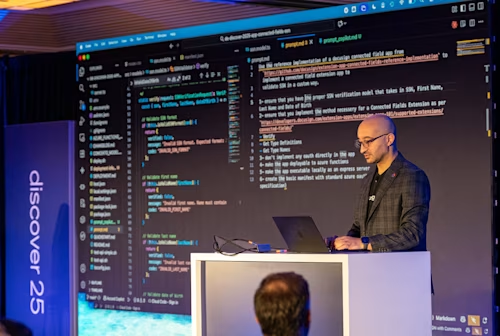
Trending Topics: Latest from our forums (July 2021)
See how our most popular recent threads on StackOverflow can help you solve your own development issues.
Table of contents


Here are some of the latest popular questions that the Docusign developers community asked on Stack Overflow in the month of July 2021. You too can ask questions by using the tag docusignapi in Stack Overflow.
Thread: Docusign - best option for multiple users / contracts
https://stackoverflow.com/questions/68271048/
Summary: The developer is early in evaluating the Docusign eSignature API. They are interested to understand how, using PHP, they can send real estate contracts with some modifications to different customers who may not have a Docusign account.
Answer: The scenario that the developer is describing in this StackOverflow post is extremely common. First off, there’s no need for signers to have their own Docusign account. The application may initiate the process of sending an envelope containing a contract to signature via email, and the end user simply has to select the link in the email message and start signing. They do not have to log in to do so. This is not the case for the application itself, which must authenticate to Docusign so that it can use the Docusign eSignature REST API.
As for custom fields, the developer can use a template with values that can be either pre-filled by software or filled manually by someone else as part of the signature workflow. Both scenarios can be accomplished using tabs or signing elements that make the documents sent with Docusign more dynamic.
Developers starting with Docusign are encouraged to try our Quickstart that supports PHP and seven other languages so they can quickly see how the eSignature API works.
Thread: Docusign multiple signatures
https://stackoverflow.com/questions/68305992/
Summary: This developer is building an integration using the Java SDK and the Docusign eSignature REST API. They started by exploring the Docusign Quickstart application. They need to send documents via bulk send to multiple signers and then download the completed document, but they couldn’t find how to do that given that the examples in Quickstart didn’t show this exact scenario. They also wanted to know if, when multiple signers place their tabs, they can see the other signers’ tabs, and what happens if the tabs conflict in their positioning.
Answer: There are many different ways to place tabs, but generally they are divided into two: either using freeform signing, which enables the end user (the signer) to drag and drop their own tabs (signing elements) into the document(s), or by the sender determining where the tabs should be placed. (This is an either/or situation: if the sender places tabs, the signer cannot).
When you have multiple signers, subsequent signers can typically see tabs of signers who signed before them, but they cannot see tabs of signers who have not yet signed, even if these tabs were placed for them. It’s therefore not advisable to use freeform signing with multiple signers. Instead, you can place the tabs for the signer, either by providing the tabs’ x/y coordinates, by using anchor strings, or by using PDF form fields. You always have to specify which signer a specific tab is for (and, in fact, in the JSON or object model, the recipient object is the parent node of the tab objects).
Lastly, using the Docusign bulk send feature does not change the rest of this discussion. Bulk send just enables sending the same envelope to many recipients at once by cloning it as many times as needed. The rules for tab placement remain the same.
Thread: JWT or AWT for Docusign integration
https://stackoverflow.com/questions/68263880/
Summary: The developer is trying to use JWT for authentication and is confused about consent.
Answer: JSON Web Token (JWT) authentication enables developers to request a token on behalf of some user without that user having to log in. That means that except for the first time, when the user has to consent, there's no web UI required to obtain a token. JWT tokens are for a specific user in a specific account, and it's the GUID of that user ID that is used to uniquely identify a user. If you have multiple accounts, you will have to ensure you use the right user ID for the right user for the right account. Note also that users in Docusign have different permission profiles and may or may not have the access required to do what the API is trying to do.
JWT may not be the best option for web applications enabling many different users to send envelopes using their own Docusign login. For these scenarios, Authorization Code Grant is a more suitable model, as it requires the end user to log in to Docusign with their credentials before a token for accessing the API is generated.
Additional resources

Inbar Gazit has been with Docusign since 2013 in various engineering roles. Since 2019 he has focused on developer content and advocacy. Inbar works on code examples including the launchers, available on GitHub in eight languages, and helps build sample apps showcasing the various Docusign APIs. He is also active on Docusign Community and StackOverflow, answering your questions. Inbar can be reached at inbar.gazit@docusign.com.
Related posts
Docusign IAM is the agreement platform your business needs





